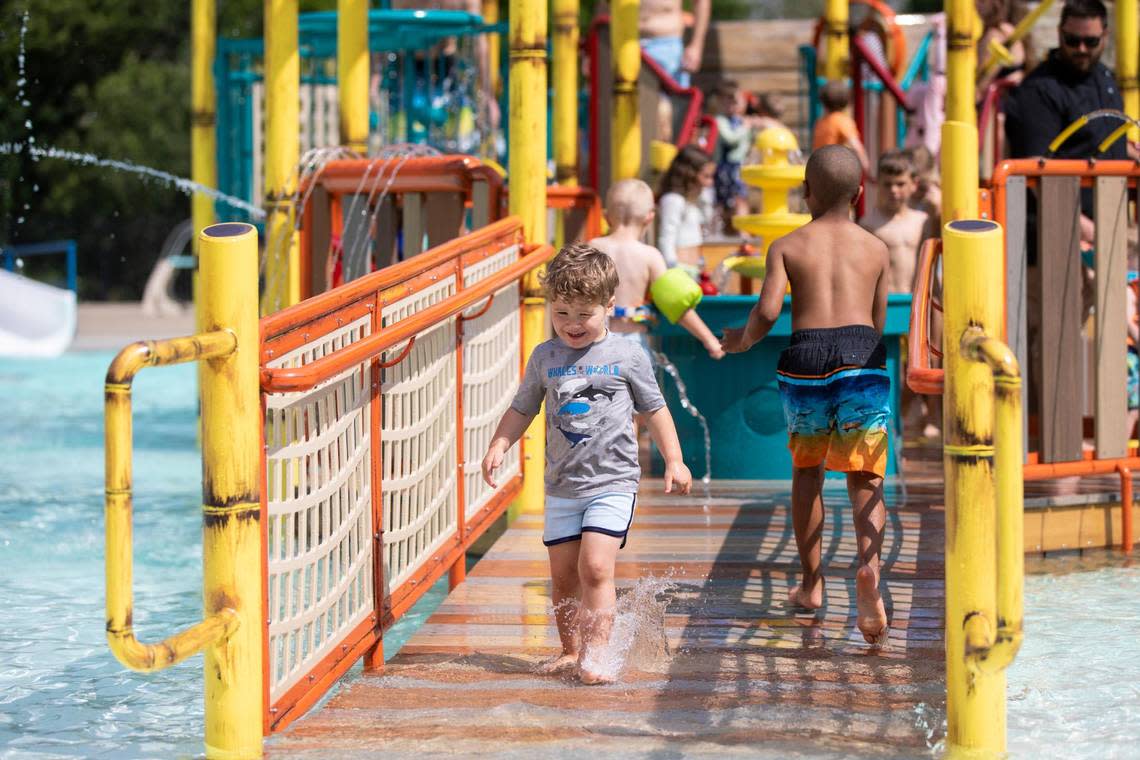Lexington’s parks need $8 million a year, organizers say. Tax to pay for it clears first hurdle
A push to allow taxpayers to decide if there should be a special tax to support Lexington’s more than 100 parks moved forward Tuesday.
A group of citizens called Parks Sustainable Funding has proposed a referendum that would set up a separate tax to permanently generate approximately $8 million a year for parks capital projects. The group launched in late February.
The Lexington-Fayette Urban County Council Budget, Finance and Economic Development Committee voted unanimously to move the proposed referendum forward during a Tuesday committee meeting.
Now the referendum will move to the full council for its first vote on April 9. To move a referendum to the Nov. 5 ballot, nine of 15 council members must approve it.
If passed, the average homeowner would pay an additional $52.88 per year in taxes. That’s roughly 2.25 cents per $100 of taxable real property.
Public parks are one of the city’s most used amenities. Yet those parks need more consistent funding in order to be maintained, Parks Sustainable Funding backers said.
A 2018 parks master plan showed 90% of Lexington residents use public parks. More than 57% of Fayette County residents visit or use parks at least once a month, according to the master plan. A 2023 parks master plan update showed the city needed $123 million in upgrades and improvements, or funding of roughly $8.5 million a year.
Victoria Meyer, chair of the parks advisory committee, said the group has studied sustainable parks funding for years. The parks advisory committee, consisting of volunteers, helps advise the parks department.
Great parks also help attract jobs and keep jobs in Lexington, said David Lowe, one of the people spearheading Parks Sustainable Funding.
“We have universal usage of parks in our community,” Lowe said. “There is a considerable capital need in our parks.”
The Trust for Public Land, a nonprofit, estimates that public referendums to fund parks has an 83% success rate, Lowe said.
Other cities have used public referendums to pay off bonds or loans for parks. That’s not what the group wants to do. This will not increase the city’s borrowing, which can hurt the rate at which the city can borrow, Lowe said. The $8 million generated will be used to pay for capital projects rather than borrow or bond for those projects.
Council members say they think voters should decide
Meyer said they have already received requests from council members to meet with certain neighborhood and community groups and will continue to do so.
“I know that parks made a huge difference in the lives of our residents particularly during the pandemic,” said Councilwoman Hannah LeGris.
Councilwoman Jennifer Reynolds said one of the biggest requests council members receive from their constituents is to add amenities to parks.
“I see there is a need for this,” Reynolds said. Reynolds also said she has heard from some constituents who have concerns about the tax. Reynolds said many didn’t understand the effort is not about the city adding a tax; it’s about allowing voters to decide whether to add the tax.
Councilman Chuck Ellinger, who is a member on the parks advisory board, said if approved, the additional money would mean the city can spend funds elsewhere.
Ellinger said he typically does not support tax increases, but he supports allowing taxpayers to decide.
Other council members agreed.
Councilman Preston Worley said he too is not supportive of additional taxes or tax increases but he thinks it’s important to allow voters decide. Also, consistent funding would allow parks to be fully funded for the first time, he said.
“I will be supportive of this effort,” Worley said.
How parks are currently funded
The city has used more than $24.6 million in American Rescue Plan Act funding for a host of parks improvements, including the building of Cardinal Run North, a large, regional park off of Versailles and Parkers Mill roads which is currently under construction.
But the federal coronavirus relief money has now been exhausted.
Yet, Cardinal Run North, as well as Kelly’s Landing, a new park under construction on the Kentucky River, will need other capital improvements after the ARPA funding runs out, park officials have said. Then there’s ongoing maintenance and upkeep. For example, the city borrowed $2.1 million this year to reconstruct Douglass Pool, which has had near-constant repairs over the past few years.
The $8 million the tax is expected to generate would be used only for capital projects, backers said.
People have seen the improvements that those ARPA funds have paid for, Lowe said.

The city would still have to pay for park personnel and other operating costs.
How a referendum can get on the ballot
There are two ways for a referendum on a tax to make it on a ballot — public petition or a council vote.
If approved by the full council, it will be placed on the Nov. 5 ballot.
The last time Fayette County residents got to vote on a local tax referendum was in 2004 when it approved a separate tax for Lextran. The bulk of all property taxes goes to the Fayette County Public School System and the state. Other property taxing districts include the Fayette County Health Department, the soil and water conservation district and the Fayette County Cooperative Extension Service.
